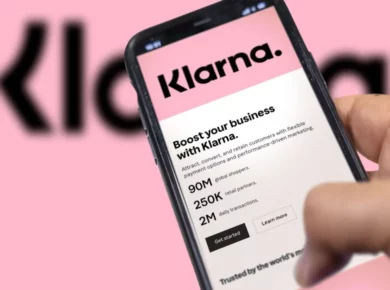Best Credit Card Deals For You
Compare Credit Cards
Our credit card comparison service is quick and easy to use: just enter your details and see if you could find a great deal for a 0% interest, balance transfer or even a cash back credit card.
Our panel of top credit card providers
We help you compare deals from leading credit card providers across the market so you can be confident to pick the best deal for your needs.






Compare credit cards
Our service makes it quick and easy for you to compare credit cards and apply online, including options if you’re looking for balance transfer cards, cashback, rewards, air miles, charity cards, low APR cards, lifetime balance transfers, 0% transfers or 0% purchase cards.
We can also help you find the right card for using abroad and we offer a comparison of premium and business cards.
At the other end of the scale, if you’ve got a bad credit rating you may want to take a look at the specialist products on offer such as credit builder cards, and there are low balance transfer fee options available, too.
Credit cards can be a convenient way to pay for products easily.
If used sensibly, they can help spread the cost of big purchases, earn cashback and loyalty points, give you consumer protection, and could even help cut the cost of any existing debt you may have.
Chargeback is a way of getting your money back if things go wrong on debit card purchases and credit card purchases under £100.
No, but they're similar. You have to repay the balance in full each month, there’s often an annual fee and not all retailers will accept them. Charge cards are usually aimed at businesspeople or high earners and you may expect loyalty points or other perks for using one.
Types of credit cards
Interest free credit cards
In some cases, you won’t be charged interest on balance transfers or purchases with interest free credit cards. Your provider will usually grant you a grace period of two years, after which you will begin to pay interest.
Balance transfer credit cards
A balance transfer card lets you move an existing credit card debt to a card with 0% introductory interest or a low interest rate.
If the interest-free period ends, make sure you know the transfer fees and interest rate you will be charged.
Bad credit credit cards
People with bad credit can still get credit cards and by using one of these cards and repaying the bill in full each month, you will improve your credit history.
As these cards typically have high interest rates, you might want to look into other ways of paying off your existing debt and improving your credit rating before applying.
Purchase credit cards
These sometimes offer a long interest-free period before you start paying interest, so you can spread the cost of a major purchase.
You still need to make at least the minimum monthly repayments to avoid default fees and you should aim to repay the full balance before the interest free period ends if you want to avoid paying interest altogether.
Reward credit cards
Reward credit cards earn you points for rewards schemes such as Tesco Clubcard points, Nectar points or Avios miles.
Cashback credit cards
Cashback cards enable you to claw back a chunk of your regular spend as cashback.
Very handy for purchases that are going to happen anyway but be sure to clear the balance before interest kicks in or you’ll likely pay more that you get in cashback.
How do credit cards work?
Credit cards allow you to pay for things on credit, acting as a short-term loan.
Providers allow you to spend up to their credit limits, then either pay off the bill in full each month or make monthly instalment payments.
The provider will set the minimum monthly payment based on the balance you owe if you don’t pay off the balance completely.
Credit cards are available to meet a variety of needs, including reward, purchase, and balance transfer cards.
An interest rate is attached to every credit card. Interest rates are determined by your credit score, as well as by the provider’s own criteria.
In some cases, credit cards offer introductory rates, which mean lower interest rates when you first take out the card. 0% interest on purchases or balance transfers for a certain period of time, for example.
However, be aware of other fees and know when it ends because you’ll start paying interest.
Related Articles
Credit Cards FAQs
Frequently Asked Questions - Credit Cards
Can I get a joint credit card?
Not really. Unlike bank accounts, there isn't really a joint account equivalent. However, you can have multiple cardholders on a single account depending on your credit card provider.
It’s important that you trust your additional cardholder not to run up big debts.
Can I pay off a credit card early?
Yes - credit cards are different to other forms of credit like loans or mortgages as you normally won’t be charged any fees or penalties for paying off your debt early.
What do I need to apply for a credit card?
In order to apply for a credit card, you will need to have a few bits of information ahead of your application. This usually includes your addresses for up to the previous three years as well as details about your income, outstanding debt and employment.
If you're looking at a balance transfer credit card, you'll also need details of your current card to process the transfer.
What is APR?
APR stands for "Annual Percentage Rate" which gives you an idea of how much it will cost you in interest to hold debt on your credit card.
Beware of the term ‘representative APR’ as current rules allow for the interest rate quoted to be offered to only 51% of successful applicants before it can be used in adverts, so your actual rate may differ on application.
Can I withdraw a credit card application?
Yes you can, as the majority of cards have a 14-day cooling off period that allows you to return it to the provider as long as you have paid off any balance you may have accrued on the card.
What's Section 75 and how does it protect me?
Created to protect your credit card purchases if something goes awry; Section 75 is part of the Consumer Credit Act and ensures your credit card provider and the seller hold equal responsibility if there’s an issue with something you bought on your credit card as long as the single item is valued at more than £100 and less than £30,000.
Compare Credit Cards with MoneyRaters
Our credit card comparison service is quick and easy to use: just enter your details and see if you could find a great deal for a 0% interest, balance transfer or even a cash back credit card.



